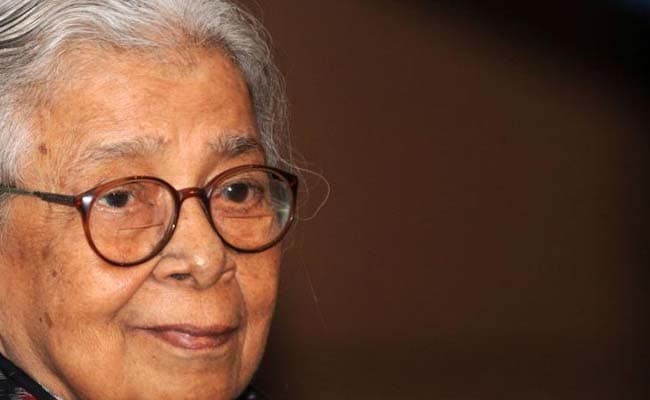
Mahasweta Devi was the voice of the oppressed in her novels and short stories.
A litterateur with the zeal of an activist, Mahasweta Devi used creative expression as a tool to fight for the rights of the indigenous people and marginalised sections.
With the sincerity of an activist and the passion of a writer, the Bengali writer was the voice of the oppressed in her novels and short stories, which won her a number of awards including the Padma Vibhushan, Magsaysay, Sahitya Akademi and Jnanpith.
All her acclaimed works like ‘Hajar Churashir Ma’ (Mother of 1084), ‘Aranyer Adhikar’ (Right to the Forest, ‘Jhansir Rani’ (The Queen of Jhansi), ‘Agnigarbha’ (The Fire Within), ‘Rudali’, ‘Sidhu Kanhur Daakey’, etc give us invaluable insights into the lives of the oppressed class.
A number of her works have been adapted for the silver screen. Govind Nihalani’s 1998 Hindi film ‘Hazaar Chaurasi ki Ma’ (The Mother of 1084) is based on her Bengali novel on the emotional struggles of a mother who tries to understand the reasons behind her son’s involvement in the Naxalite movement.
In 1993, Kalpana Lajmi also made the award-winning ‘Rudaali’ on her novel by the same name chronicling the life of professional mourners upon the death of upper-caste males in Rajasthan.
Italian director Italo Spinelli also made the multi-lingual ‘Gangor’ based on her short story ‘Choli Ke Peeche’ about the rights of women.
Going beyond her role as a writer and journalist, Mahasweta Devi also helped tribals and the rural dispossessed in organising themselves in groups so that they could take up development activities in their own areas.
She founded several grassroot level societies for the welfare of tribals.





